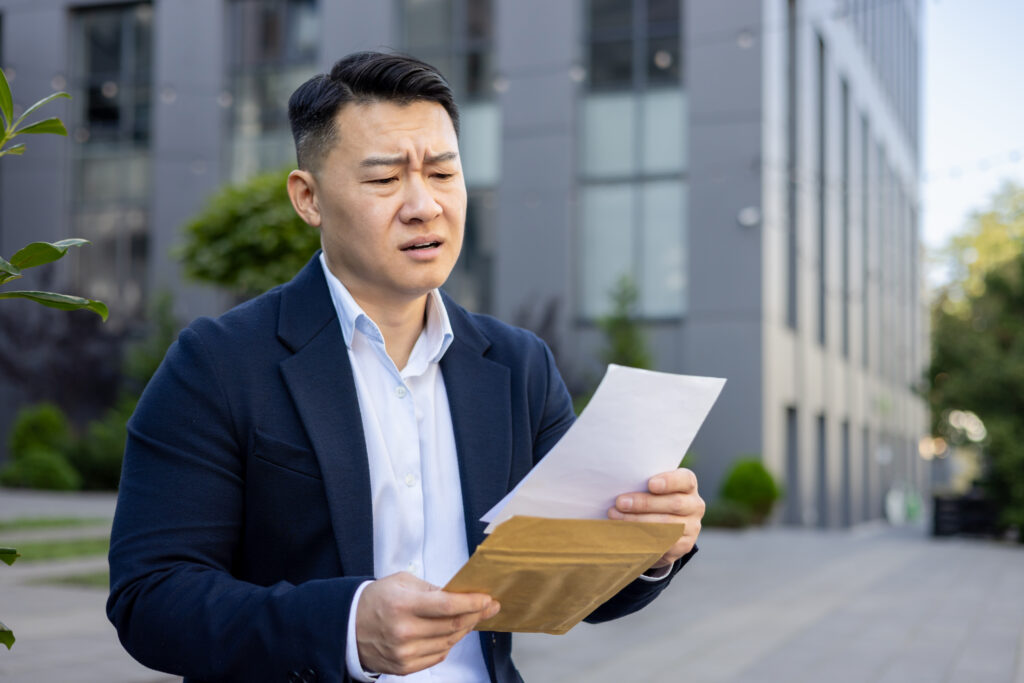Receiving divorce papers can be a difficult and confusing moment. For many, it’s the first sign that a spouse has formally taken legal action to end the marriage. In Massachusetts, being “served” with divorce papers carries legal significance—it marks the beginning of a court process that can affect property, finances, and parenting arrangements. Understanding what this means and how to respond can help protect your rights during the divorce process.
What Does It Mean to Be Served?
When a spouse files for divorce in Massachusetts, the law requires that the other spouse be formally notified. This process is known as “service of process,” and it ensures that both parties have a fair opportunity to participate in the legal proceedings. The person who initiates the divorce, called the plaintiff, must serve the other spouse, known as the defendant, with a copy of the Complaint for Divorce and a court-issued Summons.
This is not simply a formality—it’s a legal requirement. Until service is completed, the court generally will not move forward with the case. Proper service also starts the clock for important deadlines, such as the time the defendant has to respond to the complaint.
How Are Divorce Papers Served in Massachusetts?
There are several ways to serve divorce papers in Massachusetts, but the most common method is through personal service by a sheriff or constable. The officer delivers the court documents directly to the defendant, and then completes a return of service form, which is filed with the court to prove that proper service occurred.
In some situations, a defendant may agree to waive formal service by signing an Acknowledgment of Service. This can be more convenient and is often used in uncontested or amicable divorces.
If the plaintiff is unable to locate the defendant despite reasonable efforts, they can ask the court for permission to serve the papers by publication. This involves placing a legal notice in a local newspaper approved by the court. Service by publication is only allowed when personal service is not possible, and it requires a motion and supporting affidavit explaining the efforts made to find the defendant.
What to Do After You’ve Been Served
If you are served with divorce papers, your first step should be to carefully read the documents. The Complaint for Divorce will outline what your spouse is asking for, including custody arrangements, division of property, spousal support, or other relief. The Summons will inform you of the deadline to respond—typically 20 days from the date you were served.
Your response, known as an Answer, gives you the opportunity to agree or disagree with your spouse’s claims and to make your own requests. You may also file a Counterclaim for divorce, which allows you to state your own grounds and outline your position on issues like parenting time and property division.
It is highly recommended that you speak with a divorce attorney as soon as possible. An attorney can help you understand your rights and obligations, guide you through the court process, and ensure that your response is properly filed and served.
Preparing for the Next Steps
In Massachusetts, once the case is underway, both parties are usually required to file a financial statement and exchange documents through a process called mandatory discovery. This includes tax returns, pay stubs, and bank records. These documents will be used to evaluate financial support, asset division, and other critical issues.
If children are involved, you may also be required to attend a court-approved parenting education program early in the process. Courts may issue temporary orders on parenting schedules, child support, or spousal support that remain in effect until the final divorce judgment is entered.
Consult a Massachusetts Divorce Attorney
Being served divorce papers is a serious matter, and your response will set the stage for how your divorce unfolds. If you have received divorce documents in Massachusetts, it’s important to act quickly, understand your rights, and make informed decisions. Contact us and speak with an experienced Massachusetts divorce attorney to discuss your case and get the legal support you need during this important time.


